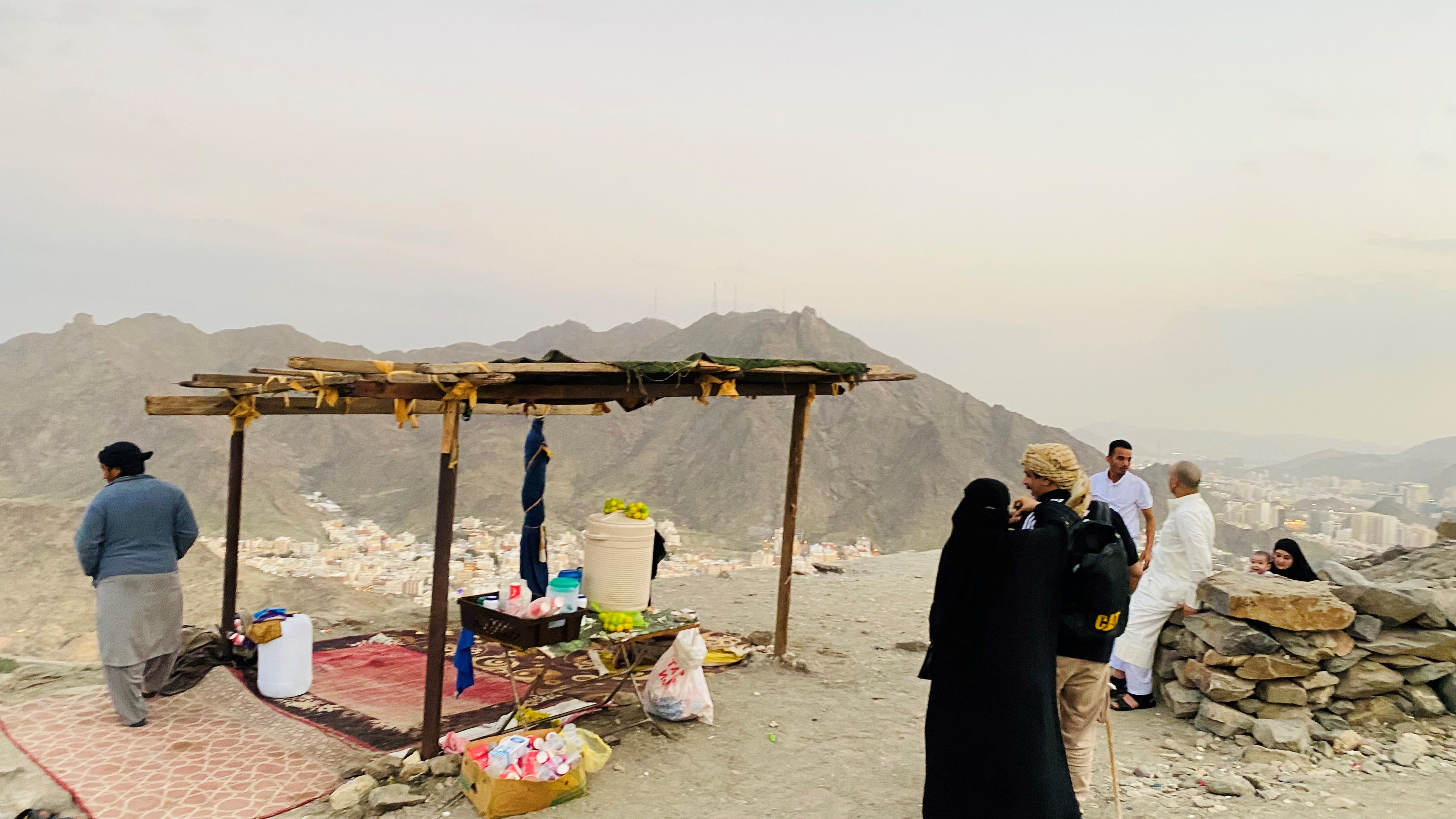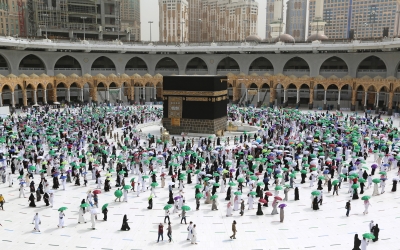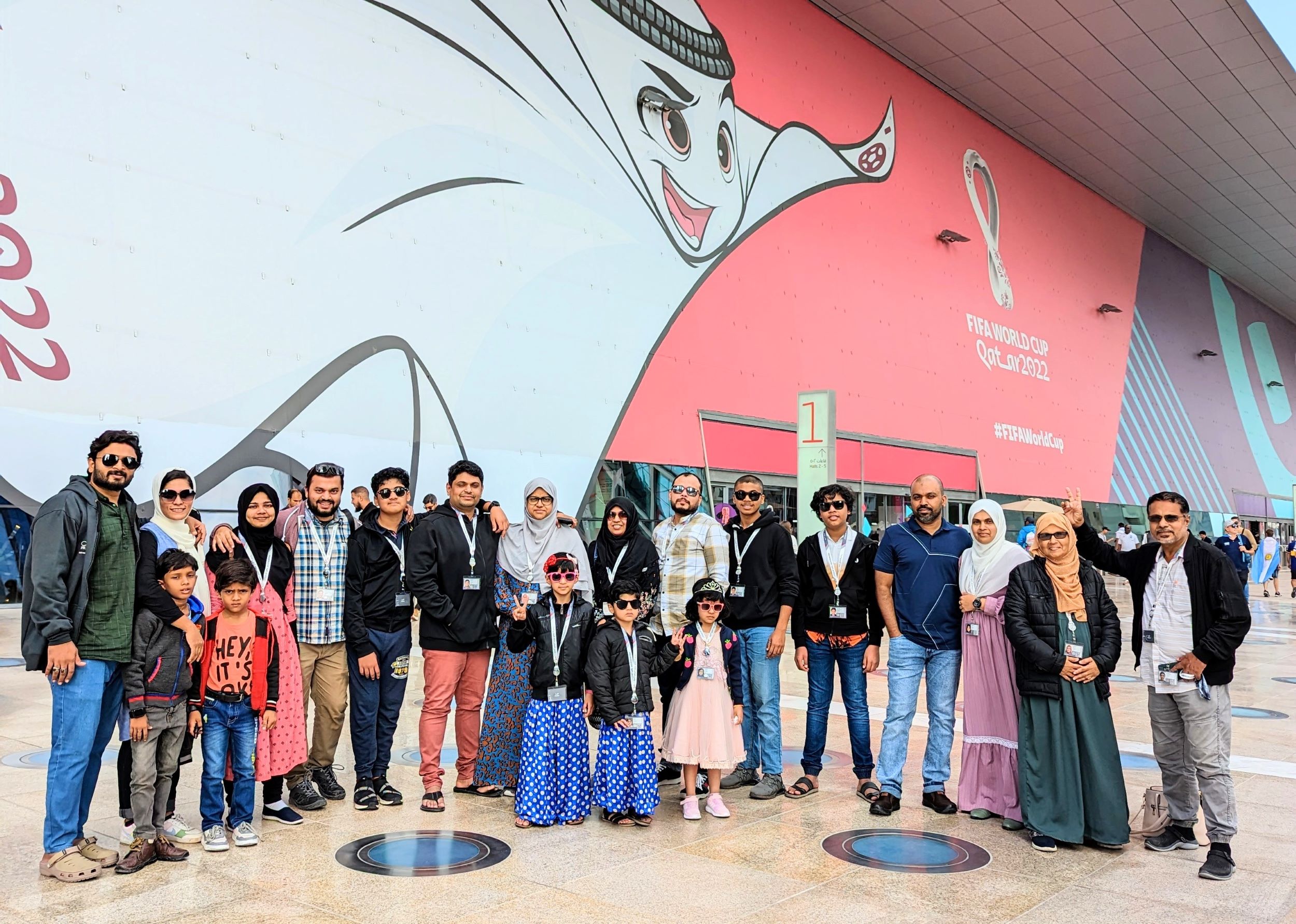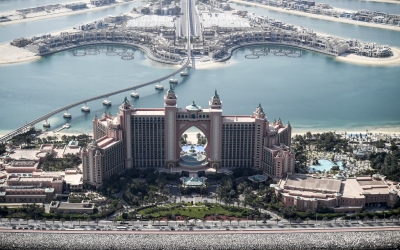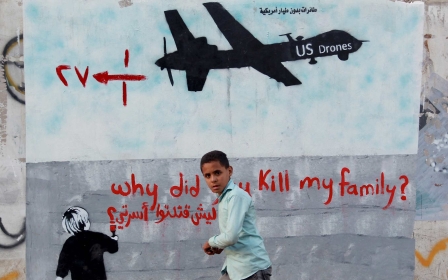New Saudi tourist visa opens up the country to Gulf expat travellers
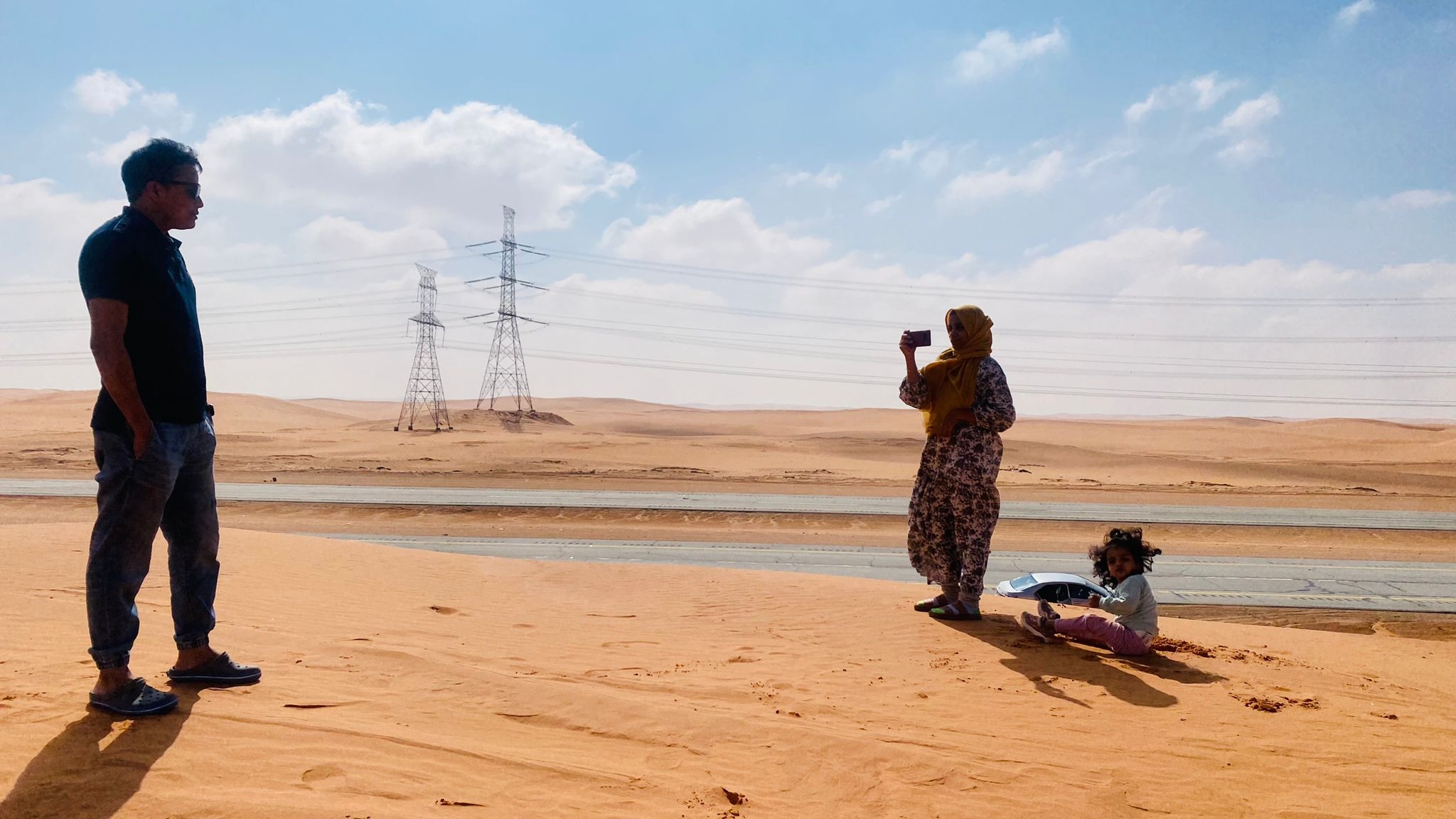
Keiko Sasaki, a self-described Japanese solo traveller based in Doha, has recently taken three road trips to Saudi Arabia, something she could never imagine doing before.
After her conversion to Islam in 2014, Sasaki went to the Saudi embassy in Tokyo to request they facilitate her Umrah pilgrimage, as she couldn't get a male relative to accompany her to Mecca.
"The embassy staff helped me to draft a letter to higher-ups in Saudi, but it was rejected," she told Middle East Eye.
Now, Sasaki and thousands of others have begun crossing back and forwards between Gulf countries, as restrictions have been lifted in the aftermath of Covid-19.
The Qatar World Cup sparked the trend, which has been boosted by Saudi Arabia's introduction of a multiple-entry visa that enables GCC residents with "good professions" to enter the kingdom multiple times within 90 days in a year.
New MEE newsletter: Jerusalem Dispatch
Sign up to get the latest insights and analysis on Israel-Palestine, alongside Turkey Unpacked and other MEE newsletters
Saudi Arabia shares borders with eight countries: Jordan, Iraq, Kuwait, Qatar, the UAE, Oman, Yemen and Bahrain.
In the run-up to the World Cup, Saudi Arabia and the UAE allowed all ticket holders visa-free entry; many fans took this opportunity to visit Mecca and perform Umrah, the second holiest pilgrimage in Islam.
Many expatriate fans from Oman, UAE, Kuwait and Bahrain crossed from Saudi Arabia into Qatar to watch matches while also organising family reunions.
Ambala Purath Ali Koya, from Malappuram district in Kerala, India, met all his sons and their families living in Saudi Arabia, Bahrain and Dubai when he came to Qatar for the World Cup.
"We lived scattered in Qatar, in many relatives' houses and gathered in restaurants and parks in the daytime through planning in our WhatsApp group," Koya's son Umer Naseef Ali told MEE.
PK Asheem, a PR executive in Dubai, told MEE that many of those who hadn't "otherwise thought of travelling to neighbouring countries went to Qatar to watch the matches".
"Also, the new Saudi visa makes Umrah easier. The trend will only grow."
The kingdom has for a long time failed to encourage tourists except pilgrims, and only a few non-pilgrims expressed an interest in visiting. Visitors in the past have complained of hostile treatment at airport immigration services and feared the mutawa, the religious police.
Sasaki recalled her Saudi friends told her: "If there's an old guy at the mall, sitting and reading a newspaper from the morning, he is a mutawa, and always be careful not to reveal ankles when you get out of the car."
'Like fish in the market'
Fazil Firoos, a travel agent in Dubai, told MEE that previously there were only Saudi Public Transport Company buses from the Deira transport hub for Umrah pilgrims, but now there were private buses.
"The number of buses, too, has doubled," he said.
A hospital administrator in Riyadh said that though these trips were not costly, they reflected expatriates' lifestyle changes and their perception of disposable income.
"These trips are weekend trips. For annual vacations, middle-income people go to Armenia and Georgia," they said.
The Saudi visa was one of the toughest to obtain in the GCC, but now they sell it "like fish in the market", Hameeda, a long-time Indian expatriate in Bahrain, told MEE.
A member of the "penny-saving generation", he said these new visa policies are prompting many "young families to spend the best part of their vacation and budget in any of the GCC countries".
An expatriate Qatari government official who spent two weeks in Saudi Arabia in January with his family of five broke up the budget this way: fuel for his Land Cruiser, $347, a five-night-six-day hotel stay in Mecca, $427, and a four-day hotel in Medina, $1,200.
He stayed with his relatives in Al-Khobar and Riyadh for the rest of the trip.
"Even though I lived in Saudi and performed Umrah several times, this was special," he told MEE. "Everyone, including my daughter, drove the vehicle, so we were not exhausted. I'll go again after Ramadan and Eid."
The men-only groups spent less than families. A group of three, who took a four-day trip covering Riyadh, Mecca, Medina and Jeddah during the new year, said they spent a total of $220, excluding hotels.
"In Mecca, a room with five beds cost us only $21.33 that time, and dormitory beds were available for as cheap as $5.33," they said.
Data from August 2020 shows the Mecca region hosts 65.8 per cent of hotels in the kingdom. Mecca and Medina have 2,000 hotels, 384,500 hotel rooms and around 1.5 million beds, and most are unoccupied outside of pilgrimage season.
But many people MEE spoke to said Saudi Arabia was becoming more expensive.
"Only hotel room rent is cheaper," the government official said.
GCC road trippers
Six months before Saudi Arabia's introduction in March 2022 of visas for a wider section of GCC residents, a Facebook group named "Doha to UAE Road trippers" was formed by two apparently western expatriates.
After Riyadh rolled out new visas for a wider group of expatriates in September, the group's name was changed in October to Doha to GCC Road trippers. When last checked, it had more than 11,000 members.
Would-be travellers post questions in the group, and those who travel give tips, advice on shortcuts and information on vehicle and health insurance.
Some members write short travelogues while an admin puts up a downloadable "How To" PDF.
The admins of the page did not respond to MEE's messages asking for more information.
The group also shows some people talking about not getting visas and problems with refunds for cancelled travel plans.
"I Just received 12 USD medical insurance refund. That is also after four months," one member commented on a post.
This is probably because applications are getting rejected because of applicants' listed professional status in their resident visa descriptions.
'In Mecca, a room with five beds cost us only $21.33 that time, and dormitory beds were available for as cheap as $5'
- Qatari expat official
While the Saudi list of eligible professions is so large as to include art therapist, youth hostel manager, philosophy specialist, youth care supervisor, microfilm clerk, verbatim reporter, media censorship specialist, folk medicine specialist and manager, many of those professions may not exist in the same name in some other countries.
For example, a driver who works with a real estate businessman in Qatar said he was denied a visa to Saudi Arabia last month because his Qatar ID profession was "cook" and the Saudi list only includes "chef".
This issue is not limited to Saudi Arabia. Last month, an event manager in Jeddah said he was sent back from the airport by a Saudi official because Qatar's list did not include his "general manager" profession, but only "manager".
"Second time, a sensible official came at the right moment to interpret a 'general manager' as also a manager," he told MEE.
A travel agent in Abu Dhabi said Bahrain, too, has this "good profession" clause, but waives it during the weekdays, when it doesn't expect "rich" travellers.
Evergreen Oman
AM Jaheer, a grocer in Dubai, said the trend had become so widespread that "people suddenly say while sipping their tea, 'Let's go to Qatar or Oman this evening'".
He said the new trend reminded him of the "mandatory" trips the UAE expatriates took to Al Buraimi and Khasab in Oman in the past decade, while waiting to change their visa status from job-seeking visitor to resident.
"Travel agencies made much money arranging for buses to those locations," he said.
Oman, hosting an all-time favourite picnic spot in Salalah, still has charms for nature lovers. While GCC residents with "good" professional visas arrive at its airports, road travellers need a 10-day visit visa costing under $25.
Rub-el-Khali Highway, a 725 km desert road that opened in December 2021 between the sultanate and the kingdom, makes the journey to Oman easier.
Long a magnet of adventurers and expeditionists, the Rub-el-Khali - known as the Empty Quarter - is the "biggest continuous body of sand" and the largest desert in the Arabian Peninsula, encompassing bits of Yemen, Oman, Jordan, Iraq, Egypt, Saudi Arabia, Qatar and the UAE.
The new highway eliminated the need to pass through the UAE to reach Oman.
"We no longer have to take the UAE visas twice while going and returning from Oman," Habeeb Rahman, a public relations officer, told MEE.
To help other travellers, he wrote a Malayalam post informing them where to stop for food and fuel, because the route involves long, deserted stretches with no shops.
Jordan, which is not part of the GCC, also gets an overspill of these tourists, while Kuwait stays away from the fray.
"The only visa issued in Kuwait is for newborn babies born abroad to resident expatriates. No visas for investors, tourists and family visitors," a long-time Kuwait expatriate told MEE.
"Authorities have been promising they'll open visas after the pandemic, but it's unlikely that it will happen any time soon."
The expatriate pointed out the need for a stable government in Kuwait to announce fresh policies.
A travel agent in Sharjah said that applying for a Kuwait tourist visa is easy online with minimum documents, "but you won't get the actual visa".
For serious applicants, he says, "We arrange a visa through leveraging our contacts. Kuwaiti officials often asked us 'What is there to see in Kuwait?'"
Middle East Eye delivers independent and unrivalled coverage and analysis of the Middle East, North Africa and beyond. To learn more about republishing this content and the associated fees, please fill out this form. More about MEE can be found here.


